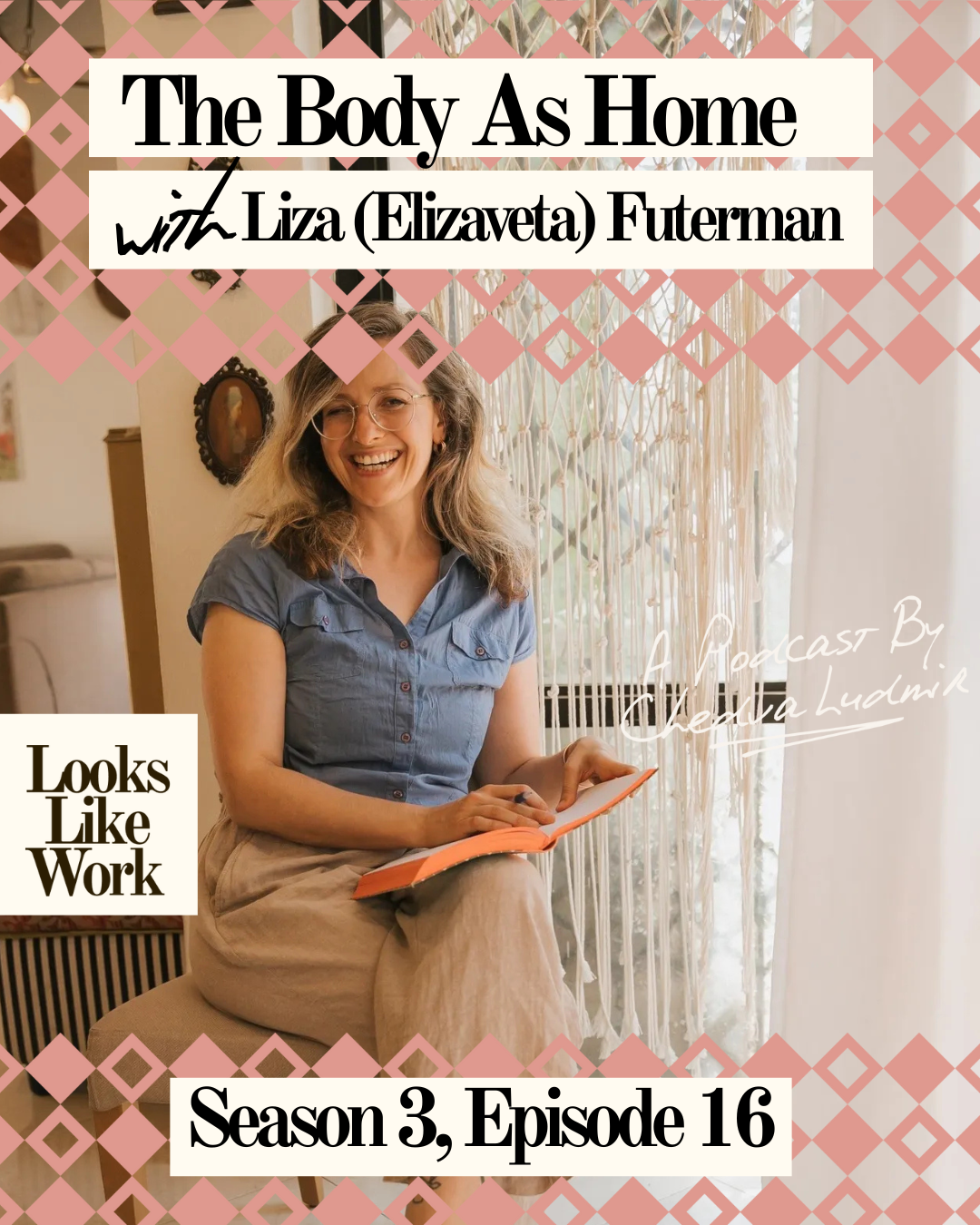The Body as Home: Movement, Language, and Questions - Looks Like Work, Season 3, Ep 16
Some transformations don’t begin with a decision. They begin with a diagnosis. Or a crisis. Or a sentence you don’t yet have the words to process.
This episode is about what happens after that moment—when the world as you know it changes, and your body becomes the only reliable place to land.
Liza Futerman is a somatic educator, writer, and artist whose journey spans countries, disciplines, and modes of knowing. She grew up between Soviet Russia and Israel, lived and studied in Oxford and Toronto, and spent years mastering the language of the mind—until her mother’s early-onset Alzheimer’s diagnosis called her back to the body.
What followed was not just a personal reckoning, but a full-on reorientation: to grief, to movement, to mixed-abilities dance, to leadership as a question rather than a role.
This conversation is soft, but not small. It’s an exploration of what it means to come home to yourself—especially when everything you once knew about control, safety, and certainty has unraveled.
Inside this conversation:
Navigating identity across languages, geographies, and generations
The split between intellectualism and embodiment—and how to stitch it back together
Using photography and storytelling to connect with a parent in decline
Contact improvisation as a practice of presence, surrender, and healing
The gifts of mixed-abilities dance and what it taught Liza about being human
Grief as a movement, not a moment
How major life events reorganize our relationship with control
The nervous system’s wisdom—and why we need to listen
Liza offers a cluster of luminous questions, each one like a doorway:
👉 “How should a human be?”
👉 “What support do I need, and how do I ask for it?”
👉 “How do I ask the right questions in the first place?”
This episode is a love letter to those in transition.
To the thinkers learning how to feel.
To the feelers learning how to move through it.
And to anyone who’s starting to realize: the body remembers what the mind forgets.
"If something is hard, it means that it's not getting the right support."
Listen to this episode on Spotify | Apple | Wherever you get your podcasts
Resources & Mentions:
Catch up on previous seasons of Looks Like Work wherever you get your podcasts: Spotify | Apple | Podbean
Subscribe to the newsletter: chedva.substack.com
Check out The Curiosity Lab and CuriosityGPT


